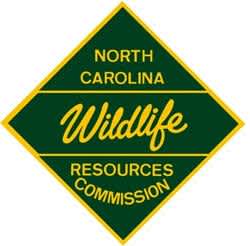North Carolina Wildlife Commission Advises on Tree Stand Safety
OutdoorHub 10.04.12

More people are hurt falling from tree stands than any other type of hunting accidents, yet tree stand-related injuries are almost always avoidable.
Last deer hunting season, officers with the N.C. Wildlife Resources Commission investigated two fatalities and seven injuries that were related to tree stand use. There have been two fatalities related to tree stand use so far this season.
The Wildlife Commission’s Home From The Hunt safety campaign has made tree stand safety a top priority in North Carolina for the 2012-13 hunting season. Hunter Education Program instructors are emphasizing proper use of tree stands and elevated hunting platforms in workshops, programs and events across the state.
“Following some basic guidelines can prevent injuries and won’t interfere with a successful hunt,” said Travis Casper, the state hunter education coordinator. “Maintain three points of contact when climbing up or down. Use a full body safety harness at all times. Check belts, chains and attachment cords before use. Follow manufacturer’s instructions.”
Other recommendations include:
- Never carry anything as you climb — use a haul line to raise and lower an unloaded gun or other equipment after you are seated safely in the tree stand.
- Have an emergency signal, such as a cell phone on vibrate, whistle or flare, readily accessible.
- Let someone know where you plan to hunt and when you plan to return.
- Select a healthy, straight tree for your tree stand.
- Don’t exceed manufacturer’s maximum height settings.
“If you have a tree stand that has been in place for an extended length of time, take it down,” Casper said. “Inspect it. Replace rusted bolts, frayed straps or, if needed, buy a new tree stand. Your life could depend on it.”
Tree stand safety is a key component taught in Hunter Education courses, required for all first-time hunting license buyers. All first-time hunting license buyers first must complete a hunter education course successfully. There are no minimum age requirements; however, classes are taught at an eighth-grade level and tests must be completed without assistance. Courses are a minimum of 10 hours. They are taught by wildlife officers, hunter education specialists and certified volunteer instructors. Hunter education certification is accepted in every state and province in North America.
To find a free course near you, go to www.ncwildlife.org or call 919-707-0031 for more information.

